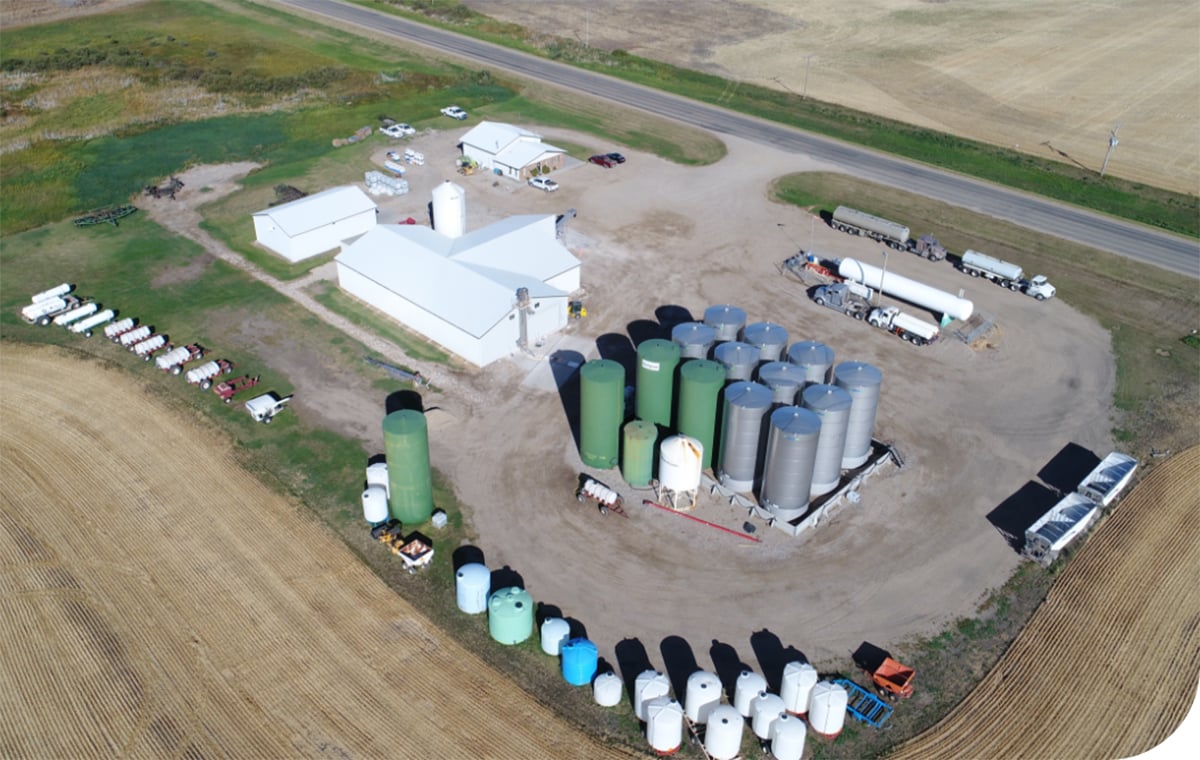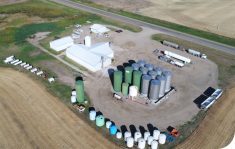Breaking records has become a broken record for Federated Co-operatives Ltd., so it comes as no surprise Canada’s top co-op has once again achieved a new height in sales and earnings in 2004.
FCL, which provides wholesaling, manufacturing and administrative services to nearly 300 western Canadian retail co-ops, recorded $3.8 billion in sales, up $275 million from 2003 when FCL’s revenues made it the biggest co-operative in Canada.
Ever-expanding revenues paved the way for the 13th consecutive year of record profits, with the company posting earnings of $333 million, up $51 million from last year.
Read Also

Saskatchewan Co-ops to acquire Blair’s locations
Blair’s Family of Companies will be turning over the operation of six ag retail locations in Saskatchewan to local Co-ops
By the time the profits are published in Federated’s annual report, they will have grown by another $83 million because of new accounting requirements that force the company to include its 50 percent ownership of NewGrade Energy Inc. in its financial reports.
Scott Banda, FCL’s vice-president of corporate and legal affairs, attributed the company’s continued strong results to the marketing programs employed by its retail co-ops and their “constant upgrading” of facilities and merchandise.
“The work of those retails out there in those various communities are paying off for us every year.”
All aspects of the diversified co-op contributed to the bottom line, although it was a bit of a mixed bag for the agro products division.
Banda said the crop supplies division had a solid year, with sales expanding 18 percent to $206 million from $175 million in 2003. Banda pointed out there was a high level of farmer optimism in the spring when most of those sales took place.
“This was one of the first years in the last number where we haven’t had significant drought curtailing producer purchasing.”
But another section of the agro products division faltered. For the third consecutive year sales of pelletized feed shrunk, this time by 16 percent to $70 million from $83 million in 2003.
While the ongoing BSE crisis has resulted in an expansion of the western Canadian cattle herd, it hasn’t resulted in a corresponding increase in sales of pelletized feed.
With vastly improved hay and pasture crops and an abundance of cheap feed grains at their disposal, Banda said cash-strapped ranchers are relying on more economical ways to feed their herds.
FCL executives spent part of 2004 exploring the idea of adding another component to the company’s agro products division.
Following up on a resolution tabled at the annual convention in March by the Olds Co-operative Association, the company conducted a feasibility study into setting up its own slaughterhouse, processing facility or both.
Banda refused to divulge the results of the study, saying they would be released to delegates at the next annual meeting in February.
The fate of another agriculture-related venture is also unknown. In its 2003 annual report FCL said it would be implementing a “least-cost plan” to meet Saskatchewan regulations requiring 7.5 percent ethanol content in all gasoline distributed in the province by 2005.
However, that plan has been placed on hold indefinitely while the company tries to sort out what the province is doing with its ethanol policy.
“I wish we knew. I don’t mean to be coy about that, but it’s uncertain as to what exactly the program is with the province.”
There is no doubt that the province’s ethanol project has been delayed by a number of setbacks, but Banda wouldn’t offer a guess when it would be implemented or what shape it will take.
When it does become law, FCL fully intends to comply, which means building a blending facility at its Regina refinery and distributing the blended fuel to its retail co-ops.

















